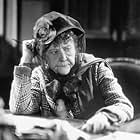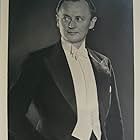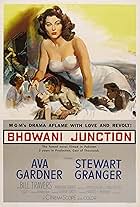Füge eine Handlung in deiner Sprache hinzuVienna glove-sales-lady Christl falls in love to Czar Alexander. Metternich tries to use this to keep him out of the conferences of the Vienna Congress from 1815.Vienna glove-sales-lady Christl falls in love to Czar Alexander. Metternich tries to use this to keep him out of the conferences of the Vienna Congress from 1815.Vienna glove-sales-lady Christl falls in love to Czar Alexander. Metternich tries to use this to keep him out of the conferences of the Vienna Congress from 1815.
- Regie
- Drehbuch
- Hauptbesetzung
- Auszeichnungen
- 1 Nominierung insgesamt
Willy Fritsch
- Czar Alexander of Russia
- (as Willi Fritsch)
- …
Carl-Heinz Schroth
- Pepi, his Secretary
- (as Carl Heinz Schroth)
Alfred Abel
- King of Saxony
- (Nicht genannt)
Alfred Gerasch
- The French Envoy
- (Nicht genannt)
Eugen Rex
- The Saxon Envoy
- (Nicht genannt)
Empfohlene Bewertungen
10J. Steed
It may not be perfect technically, but this is a sensual, made with great fun, original, capricious and extravagant operetta. It has elegance, a great cast, brilliant music and songs, wit, great sets; some scenes are even a bit bizarre and fetishistic. This is not a filmed operetta, but a real film-operetta. More than just direct, Erik Charell choreographed the film. Although the film stands on its own feet, the influence of Ernst Lubitsch (pictures) is evident.
Amongst the memorable scenes (and there are many) there is the - in its time - technically challenging sequence with energetic Lilian Harvey singing "Das gibt's nur einmal". Indeed: many operetta films have been made, but none so innovative, brilliant as this one.
This first and only German film of Erik Charell is not only a classic of early German sound film, showing all the capabilities of the UFA, but also a promising start of a film career that was not to be realized: Charell had to leave Nazi-Germany and was unable to continue his career as a film director abroad. It is curious that the film was banned by Goebbels only but in October 1937.
Amongst the memorable scenes (and there are many) there is the - in its time - technically challenging sequence with energetic Lilian Harvey singing "Das gibt's nur einmal". Indeed: many operetta films have been made, but none so innovative, brilliant as this one.
This first and only German film of Erik Charell is not only a classic of early German sound film, showing all the capabilities of the UFA, but also a promising start of a film career that was not to be realized: Charell had to leave Nazi-Germany and was unable to continue his career as a film director abroad. It is curious that the film was banned by Goebbels only but in October 1937.
In 1992, the German director Helmut DIETL remembered in his global success SCHTONK! (ACADEMY AWARD nomination 1993) not only to the fake Hitler diaries, but also to the operetta bliss of the large German film company UFA. "It only happens once, it won't happen again," sang the unforgettable Lilian HARVEY in the opulent operetta film THE CONGRESS DANCES by Erik CHARELL from 1931.
Christel Weinzinger (Lilian HARVEY) is an ordinary Viennese girl who happens to meet Tsar Alexander of Russia (Willy FRITSCH) at the Heurigen at the time of the Congress of Vienna (1815) and spends a few nice days in Vienna with this world ruler. An inconsequential story, but one that is told in such a sensual and sparkling way that it is still one of the classics of German-language entertainment films. The romantic banter includes a mysterious Tsar double (of course also Willy FRITSCH), a jealous fiancé (Carl Heinz SCHROTH) and of course the legendary Prince Metternich (Conrad VEIDT). It's wonderful how the busy prince has installed a listening system so that he is always well informed. The gentlemen from Silicon Valley seem to have apprenticed with him. Other roles include Lil DAGOVER, Adele SANDROCK and Otto WALLBURG, who was murdered in the Auschwitz extermination camp in 1944. What a shame!
Paul HÖRBIGER has a particularly beautiful appearance as a Heurigen singer in Grinzing. Tasting a glass of wine there should be part of the standard program of every visit to Vienna to this day.
This classic, shot at the STUDIO BABELSBERG, should be familiar to every film lover, even if it will be able to celebrate its 100th birthday in a few years. By the time Lilian HARVEY begins her triumphal procession through Vienna to the tunes of "That only happens once," not a single eye will remain dry.
Carl Heinz SCHROTH (1902 - 1989), who plays her neglected fiancé, experienced a wonderful television comeback from Christmas 1982 to 1989 when he filmed several episodes of the series JAKOB AND ADELE on the then West German television station ZDF alongside Brigitte HORNEY (1911 -1988).
After his escape from Nazi Germany, Conrad VEIDT (1893 - 1943) also became a superstar in the Anglo-American world. He played in the classics THE THIEF OF BAGHDAD (1940) and CASABLANCA (1942).
And Lilian HARVEY was the biggest star of the 1930s in German-speaking countries. EIN BLONDER TRAUM and GLÜCKSKINDER are other films that she made alongside Willy FRITSCH.
Christel Weinzinger (Lilian HARVEY) is an ordinary Viennese girl who happens to meet Tsar Alexander of Russia (Willy FRITSCH) at the Heurigen at the time of the Congress of Vienna (1815) and spends a few nice days in Vienna with this world ruler. An inconsequential story, but one that is told in such a sensual and sparkling way that it is still one of the classics of German-language entertainment films. The romantic banter includes a mysterious Tsar double (of course also Willy FRITSCH), a jealous fiancé (Carl Heinz SCHROTH) and of course the legendary Prince Metternich (Conrad VEIDT). It's wonderful how the busy prince has installed a listening system so that he is always well informed. The gentlemen from Silicon Valley seem to have apprenticed with him. Other roles include Lil DAGOVER, Adele SANDROCK and Otto WALLBURG, who was murdered in the Auschwitz extermination camp in 1944. What a shame!
Paul HÖRBIGER has a particularly beautiful appearance as a Heurigen singer in Grinzing. Tasting a glass of wine there should be part of the standard program of every visit to Vienna to this day.
This classic, shot at the STUDIO BABELSBERG, should be familiar to every film lover, even if it will be able to celebrate its 100th birthday in a few years. By the time Lilian HARVEY begins her triumphal procession through Vienna to the tunes of "That only happens once," not a single eye will remain dry.
Carl Heinz SCHROTH (1902 - 1989), who plays her neglected fiancé, experienced a wonderful television comeback from Christmas 1982 to 1989 when he filmed several episodes of the series JAKOB AND ADELE on the then West German television station ZDF alongside Brigitte HORNEY (1911 -1988).
After his escape from Nazi Germany, Conrad VEIDT (1893 - 1943) also became a superstar in the Anglo-American world. He played in the classics THE THIEF OF BAGHDAD (1940) and CASABLANCA (1942).
And Lilian HARVEY was the biggest star of the 1930s in German-speaking countries. EIN BLONDER TRAUM and GLÜCKSKINDER are other films that she made alongside Willy FRITSCH.
"Der Kongreß tanzt" is hugely entertaining despite its weak plot and mostly non-descript acting. That is mainly due to the lavish sets and the score. But let's begin with the beginning. The plot concerns Viennese glove maker Christel (Lilian Harvey), who meets Czar Alexander I (Willy Fritsch) on occasion of the Congress of Vienna in 1814/15. Christel and Alexander fall in love, and complications ensue (in part because the czar has brought a double, also played by Fritsch) that end only with Napoleon's return from Elba. All this is closely followed by the Austrian chancellor Metternich (Conrad Veidt), who is busy turning the country into a police- and surveillance-state and intends to distract the czar from taking an active role in the congress. Harvey is charming; Fritsch has nothing more to do than look good, and Veidt does well as scheming politician. The sets and costumes are stunning (imagine this in technicolor!), allowing German audiences in 1931 to indulge in their passion for uniforms and the monarchy. But as mentioned above, what makes this film special is the music. There are some tunes that are so catchy that they are popular to this day: I never realised that 'Das gibt's nur einmal' was from this film before watching it last night. The whole scene, where Christel sings this song while riding the carriage out of Vienna into the countryside is utterly enchanting. To summarise: In part this film is obviously fluff intended to distract the viewers from the Great Depression. However, as such, its quality is outstanding. 'Der Kongreß tanzt' works brilliantly.
This film is a treasure. It's really witty, funny... full or light eroticism, beautifully performed... lovely songs.
The long sequence of Lilian Harvey being driven to her "new Villa", singing a song is nothing less than a 10 minutes masterpiece in its own right. Harvey is sensational, wonderfully spontaneous. The song is instantly catchy. The hundreds of extras waving at the carriage, throwing flowers and balloons... the children dancing. Everything wonderfully filmed, timed and choreographed. There is a genuine joy in it that will make you feel like a child and smile.
This sequence catches the spirit of the film, but YOU ARE GETTING IT ALL WRONG IF YOU THINK THIS IS THE ONLY PART WORTH SEEING. The film is a wonderfully funny comedy to be compared with a masterpiece like "To be or not to be". In fact my rating is 10.
Films just DON'T GET ANY BETTER.
Sorry if I sound too enthusiastic, but I was just amazed. Don't miss it. It's really special.
The long sequence of Lilian Harvey being driven to her "new Villa", singing a song is nothing less than a 10 minutes masterpiece in its own right. Harvey is sensational, wonderfully spontaneous. The song is instantly catchy. The hundreds of extras waving at the carriage, throwing flowers and balloons... the children dancing. Everything wonderfully filmed, timed and choreographed. There is a genuine joy in it that will make you feel like a child and smile.
This sequence catches the spirit of the film, but YOU ARE GETTING IT ALL WRONG IF YOU THINK THIS IS THE ONLY PART WORTH SEEING. The film is a wonderfully funny comedy to be compared with a masterpiece like "To be or not to be". In fact my rating is 10.
Films just DON'T GET ANY BETTER.
Sorry if I sound too enthusiastic, but I was just amazed. Don't miss it. It's really special.
Wusstest du schon
- WissenswertesLilian Harvey played Christel in the English, French and German versions of this film. Conrad Veidt played Metternich in the simultaneously filmed English-language version of "Der Kongress tanzt." called "Congress Dances". Pierre Magnier assumed the role in the French version. Lil Dagover, Veidt's co-star in "The Cabinet of Dr, Caligari," played the countess in all three versions.
- PatzerAt the Vienna Congress held in 1815 the orchestra in a canteen played Franz Schubert's "Military March," which was composed in 1818.
- VerbindungenAlternate-language version of Le congrès s'amuse (1931)
- SoundtracksDas gibt's nur einmal, das kommt nie wieder
Music by Werner R. Heymann
Lyrics by Robert Gilbert
Sung by Lilian Harvey
Top-Auswahl
Melde dich zum Bewerten an und greife auf die Watchlist für personalisierte Empfehlungen zu.
Details
- Laufzeit1 Stunde 25 Minuten
- Farbe
- Seitenverhältnis
- 1.20 : 1
Zu dieser Seite beitragen
Bearbeitung vorschlagen oder fehlenden Inhalt hinzufügen

Oberste Lücke
By what name was Der Kongreß tanzt (1931) officially released in India in English?
Antwort

































